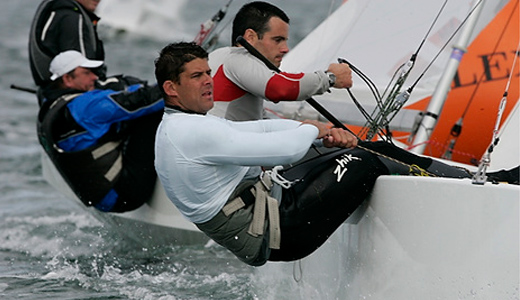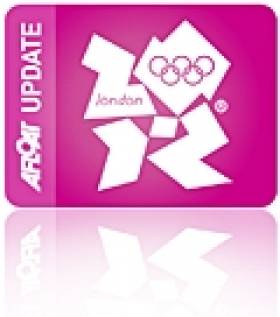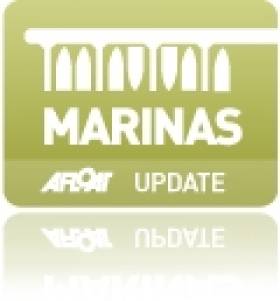Displaying items by tag: manager
New Tall Ship Sailing Body Seeks Part-Time Manager
Sail Training Ireland, the new body established by Cosite an Asgard and the Irish Sailing Association is looking to appoint a part-time manager to help with the development of a business plan for the new sailing organisation that will be officially launched in Dublin Port in a fortnight.
The appointment is offered on a self-employed basis for an initial period until 31 December 2011 after which this new position in Irish sailing may be reviewed subject to funds available. The deadline for receipt of applications is in three weeks time.
The role is on a part time basis of the equivalent of 1.5 days per week. A degree of flexibility is required.
Remuneration will be at a rate of €200 pw.
The full text of the advert publisherd today reads:
STIYD ManagerSail Training Ireland is looking to appoint a part-time manager to help with the development of a business plan and the day to day running of the organisations affaires.
Background
Since the Department of Defence declared they no longer had an interest in sponsoring the continuation of the Asgard Sail Training Programme, and the subsequent decision of the Board of Asgard to wind up the Company, a working group supported by the ISA has been working to establish a National Sail training Association.
Sail Training Ireland for Youth Development Ltd. has been established as a limited company recognised by Sail Training International as the representative body for Sail Training activities in Ireland.
The aims and objectives of the organisation are:
- To promote the development and Education of young Men and Women on the Island of Ireland in and through the Sail Training Experience regardless of Nationality, Culture, Religion, Gender or Social Background
- To promote Sail Training in the Island of Ireland and Worldwide having special regard to the promotion of and support for Sail training Vessels and their Training programmes
- To promote and encourage knowledge of all subjects associated with the sea and matters Maritime
- To sponsor and support sea-going Trainees
- To co-operate and engage with other Sail Training Associations and Organisations on the Ireland of Ireland and Internationally
- To work with Sail Training International to establish a recurring STI endorsed Tall Ships Maritime Festival every 3/5 Years.
Membership/Affiliation
Membership if STI will be open to:
- Irish Sail Training Operators
Organisations that may already exist and/or may be set up in the future.
- Supporting Organisations
Organisations that do not operate a vessel, and who support the aims and objectives of STI.
That have an interest in the development of sail training in Ireland
- Personal Members
Who would like to support the development of sail training in Ireland.
Business & Development Plan
In order to ensure the sustainability of STI, it is important that a credible plan and feasibility study is developed. This will require professional/contracted resource - funds for which may be raised through the existing goodwill and support for Ireland’s Sail Training Programme.
Key Responsibilities
1. Administrating the STI Bursary Scheme for 2011
a. Managing the payment of bursaries
b. Liaising with bursary recipients
c. Collating Reports from recipients
2. Developing a set of Rules for the Association
a. Membership/affiliation Structures
b. Procedures at meetings
c. Election of the board etc
3. Managing the accounts of the Association
a. Keep records
b. Processing of payments/income
4. Charitable Status
a. Apply for charitable status
5. Management of the Website/ liaising with the webmaster
a. Maintenance and management of content
6. Board Meetings
a. Organise meetings (venues dates etc)
b. Send out agenda
c. Take minutes
7. Business & Development Plan
a. Source/research required information
b. Draft plan
8. Membership/Affiliation
a. Develop membership/affiliation application system
b. Develop membership benefits
c. Administrate applications
d. Maintain database
9. Funding
a. Identify sources of funding, revenue generating opportunities
10. PR and Media
a. Develop media plan for STI to raise the profile
11. Queries
a. Respond to queries relating to Sail Training in Ireland
Terms and Conditions
The appointment will be offered on a self-employed basis for an initial period until 31 December 2011after which the position may be reviewed subject to funds available.
The role is on a part time basis of the equivalent of 1.5 days per week. A degree of flexibility is required.
Remuneration will be at a rate of €200 pw.
Applications
A letter of application and CV should be sent by email to:
Harry Hermon, [email protected], titled: “STIYD Application”
Closing date for applications is: Friday 22nd April. It is anticipated interviews will be held on Thursday 5th May.
Looking for further reading on Tall Ships in Ireland? Click the links below:
Click this link to read all our Tall Ships Stories on one handy page
Previewing Ireland's Tall Ships 2011 Season
Can Ireland Get a New Tall Ship?
O'Leary and Burrows Lie Fourth at Bacardi Cup
Peter O'Leary and David Burrows lie fourth overall at the halfway stage of the Star class Bacardi Cup in Miami today having posted a 7, 2 and 5 in the 93-boat fleet. Promisingly for the Cork-Dublin duo their top results have also been achieved across the wind range, a fact that must bode well for the remaining three races of the series on Biscayne Bay. Full Results HERE. A podcast with Olympic team manager James O'Callaghan is below:

Peter O'Leary and David Burrows - fourth at the half way stage of the Bacardi Cup. Photo: Ingrid Abery. More HERE
Marina Manager Course Held in Dublin
As part of the course the group developed a marina scheme for Clontarf Yacht and Boat Club.
By basing the course in Ireland delegates were able to experience at first hand Irish facilities, some for the first time. Sarah Dhandar, Director of Training at the BMF expressed her delight at the venue, "superb facilities, conveniently close by".


























































